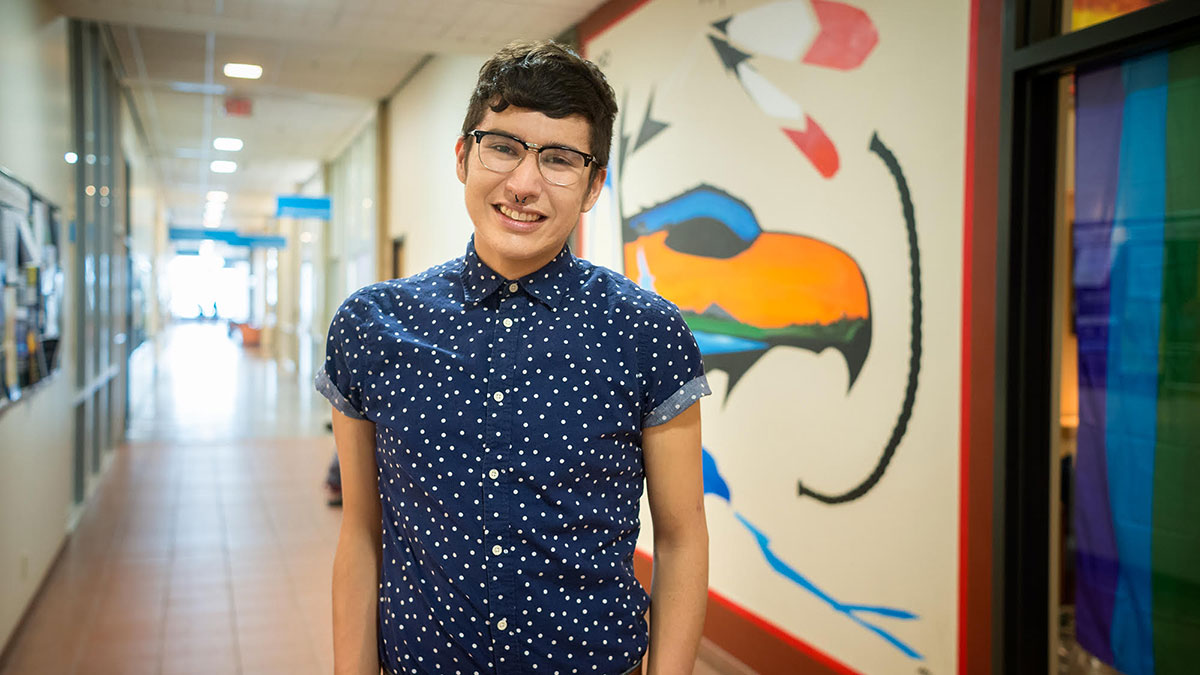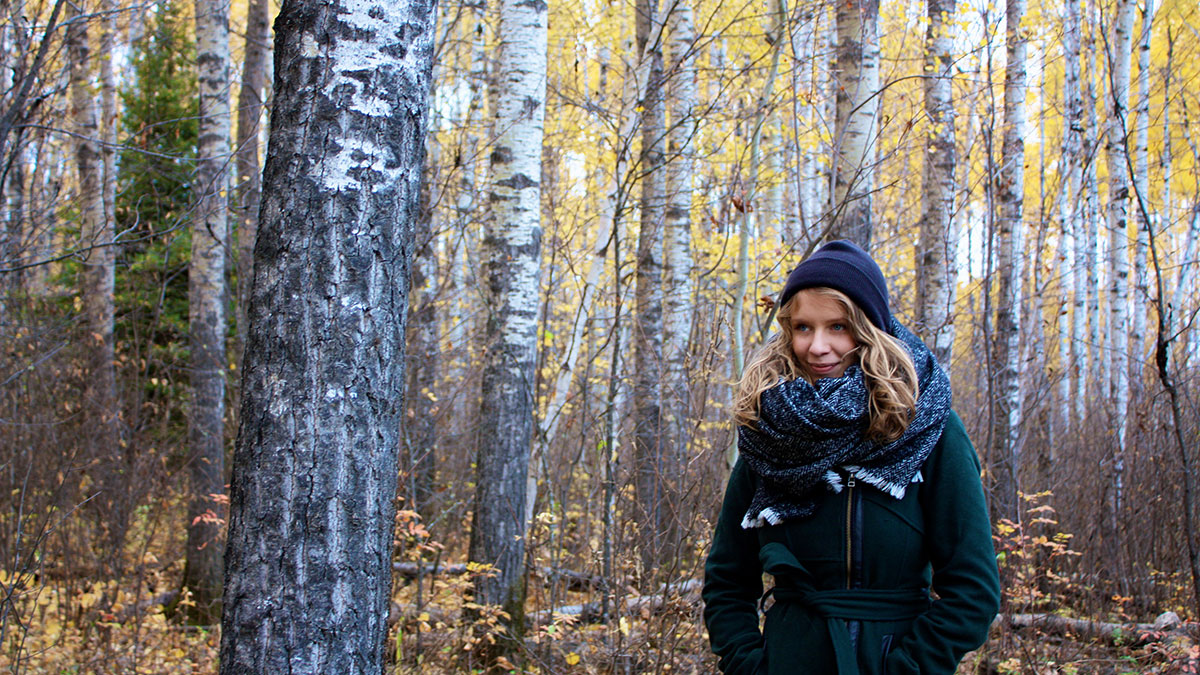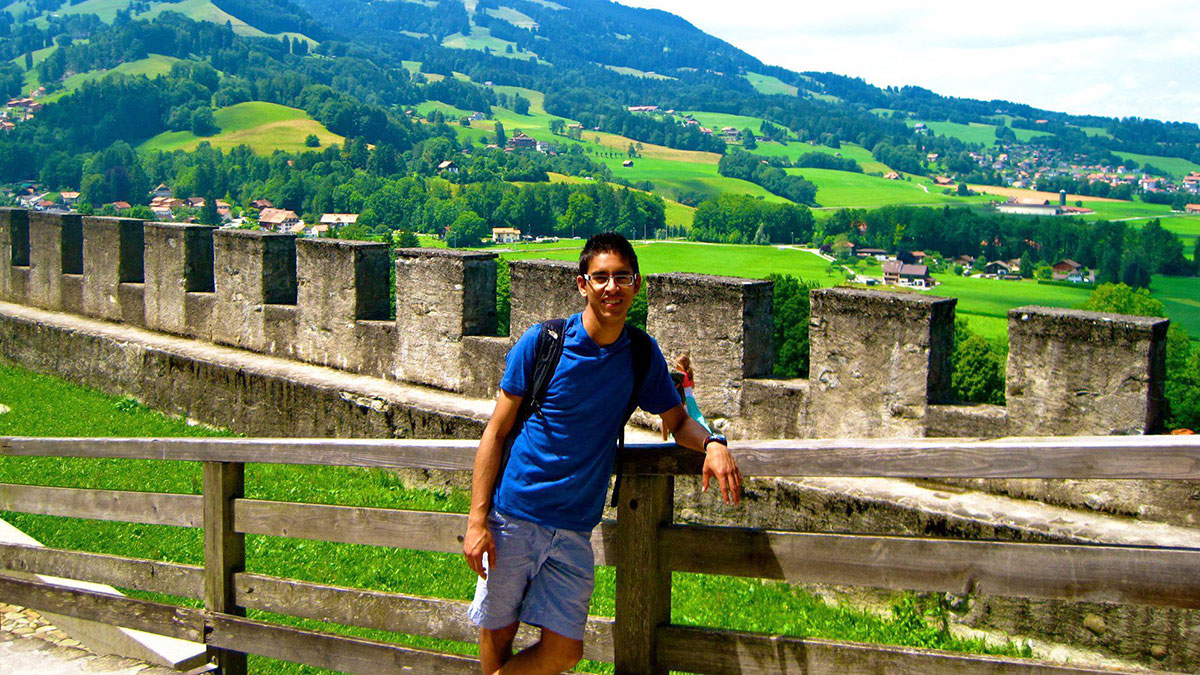Three U of A students named Rhodes scholars
 Supplied
SuppliedBilly-Ray Belcourt, Faculty of Arts
Winners of the 2016 Rhodes Scholar-elect class were notified on Sunday evening, but Billy-Ray Belcourt missed the ever so important phone call.
Belcourt was on a flight back to Edmonton from Regina, where the final interviews by the selection committee for the Rhodes scholarship took place. When Belcourt landed at the Edmonton International Airport, he received a Facebook message from Carley-Jane Stanton, a fellow University of Alberta student, who he had met in Regina, that they were both recipients of the prestigious academic award.
“I couldn’t believe it,” Belcourt said on Monday, as he recalled the moment he was told he was a Rhodes Scholar. “I started freaking out a bit. I cried for a bit, then celebrated.”
Belcourt currently serves as the president of the U of A’s Aboriginal Student Council, a student group dedicated to ensuring that the Aboriginal student voice on campus is heard. He’s also a facilitator for the Native Youth Sexual Health Network (NYSHN), a peer-based organization that advocates for safe sexuality and reproductive health in communities across Canada. As a NYSHN representative, Belcourt visited inner-city communities and witnessed first-hand the aftermath of health disparities and the absence of indigenous-specific health education and health-care. It’s become the basis for his prospective master’s degree in Medical Anthropology at Oxford University, where he plans to research the disproportionate rates of HIV transmission on First Nations reserves.
“I want to analyze current mainstream HIV prevention models, and hypothesize why they are ineffective for First Nation Canadians, then alternatively think about what is culturally safe,” Belcourt said.
Following that, Belcourt said he hopes to pursue either a master’s degree in women’s studies or visual anthropology, which would be more theoretical in nature.
“I want to look at the reason photographers and artists try to capture, what I call, precarious objects — lifeforms that are depleted or exhausted,” he said. “What it means to try and render those objects still and in that moment for a photographic capture.”
While the excitement of the win still lingers, Belcourt said the Rhodes Scholarship “wasn’t on my radar,” until he was told by the Office of the Registrar that he could be a candidate for the honour. Belcourt quickly filed the necessary document application to the Office of the Registrar, who held the initial screening process. Once he was successful at that point, Belcourt soon found his way to Regina for his final interview. While Belcourt only applied for the Rhodes whimsically after he was initially identified as a potential scholar, he finally realized on his way back to Edmonton what the award could mean for himself and his studies.
“After the interview process in Regina, I realized how much I wanted this and how someone like me could get it,” Belcourt said.
Belcourt holds the distinction of the only First Nations winner of the Rhodes scholarship. He added that he hopes to other First Nations peoples and people of colour to apply for the award — and win — in the future.
“I think its important to emphasize too that as an indigenous person that the Rhodes Scholarship is definitely fraught upon because of politics and ethics, but the Rhodes Trust is making deliberate and progressive moves to evolve from that history and create an atmosphere where other racialized folks can feel like they can apply for this scholarship — and win it.”
Carley-Jane Stanton, Faculty of ALES

Though she was nominated for the Rhodes scholarship by her faculty and was successful in the initial screenings, Carley-Jane Stanton still didn’t believe she would be attending Oxford University at this time last week.
The feeling of winning the storied academic scholarship still hasn’t sunk in yet.
“I’m in shock,” Stanton said on Tuesday, one day after winning the scholarship. “It was something that in August I had no idea was a possibility. Who thinks of themselves as someone who can win a Rhodes scholarship?”
It wasn’t that long ago when Carley-Jane Stanton was a teenager and living on her own, where she had to budget her food. That sparked her interest in food, and led to her enrolling in resource economics and environmental sociology at the University of Alberta. The class detailed food systems, and she switched over to the Faculty of Agricultural, Life and Environmental Sciences from the Department of Linguistics.
Stanton then began getting involved with the food community in Alberta, as she worked with Sustainable Food Edmonton and founded the Alder Food Security Society, a non-profit organization that addresses food insecurity in Edmonton. She’s also undertaken leadership roles with the South West Edmonton Market and Edmonton Food Council, which seeks to engage the city on relevant issues related to food agriculture.
That fascination and curiosity regarding food and agriculture led Stanton to India, where she worked with a human ecologist as a food research assistant. While in India, Stanton oversaw focus groups with rural villages to see how policies affected and impacted them. The qualitative data collected and “lived experiences” while in India made Stanton realize the gaps in North American models, and how Western society is missing people in food security.
At Oxford University, Stanton will be pursuing a master’s degree in philosophy in economic and social history, where she hopes to discover what those gaps currently are, and how to fill them with qualitative data.
“I think that all economic systems can be related to food and its all important, so being able to pick those things out and raise the voices of people that are being left out by those models, is really important and that’s where I want to go,” Stanton said.
She said she hopes to take the knowledge from her degree earned at Oxford and apply it to food security in Alberta.
As for applying what she’s learned in Alberta to Oxford, it’s getting to know the faculty and department, and thus becoming engrained in the community.
“Just follow advice, take advice from your faculty and from the leaders within the university community,” Stanton said. “It’ll get you far. I think that’s the thing I learned (at the U of A).
“I’m excited to have that, because I wasn’t necessarily too much involved with things on campus here. So the opportunity to immerse myself in my studies in a collegiate atmosphere I think will be really cool for me.”
Zia Saleh, Faculty of Medicine

Zia Saleh knows the feeling of failure all too well.
He knows what it feels like to apply to internships and management consulting groups, and being told he wasn’t right for the job after the interview and application process. One failure that stood out to Saleh, was his application to become a Rhodes Scholar-elect last year.
Saleh filed the necessary documents, and after he was named as a finalist for the award in 2014, he was invited to partake in the final interview before the Rhodes Trust selection committee panel. He was later told via phone that he was unsuccessful.
Persistence was something Saleh has been accustomed to, and this situation was no different. Saleh submitted another application for the Rhodes Scholar-elect class of 2016 and was once again, named a finalist. Following the interview, the phone call from William Johnson, secretary for the Rhodes committee, was much different.
“The Rhodes is just another example of how failure shouldn’t be an endpoint and you should learn from them and go forward and give it all you have. And at that point, if its not meant to be, its not meant to be.
“But in this case it was, and I’m happy it’s that way.”
Saleh went his second interview with the Rhodes selection committee more confident, and hungry that a master’s degree in Oxford was something he wanted to do. He was more comfortable in the process, as he had a year to reflect on his previous failure, and knew what to do to prepare for the application and interview process. While his attitude over the year changed, his dreams and vision didn’t.
“I think I’m the same person,” Saleh said, as he compared the two times he applied for the award. “I think this year I was better able to articulate where I’m at, and I think that the committee saw that I was persistent in my willingness to pursue my dreams, and that kind of fits their vision. So it just lined up nicely this year.”
That vision is a master’s degree in science and global health, which will be followed by a master’s degree in public policy at Oxford University.
Saleh’s interest in the two areas stemmed from a trip Geneva, where he learned about public policy while working for the World Health Organization and from a trip to Uganda, where he was educated about community development. These experiences showed Saleh how different fields can have an impact on human conditions, and how people can serve humanity.
His background growing up in an Ismali Muslim community,was another reason why he plans to undertake his master’s degrees in those areas. Saleh said the idea of “service” is instilled into youth at a young age, and is seen as a part of one’s duty and purpose in life. While working at Scouts Canada and at a sports program for inner-city youth, Saleh realized the “power of service” and how it could impact his life, and the life of others round him.
While his experiences helped Saleh realize what he wanted to do in life, he said he wouldn’t be here today if it wasn’t for his parents. Saleh and his brother Aly grew up in a single-parent home with his mother, Gul. Though both his parents served as mentors throughout his academic career, they are still comprehending what the Rhodes scholarship can impact Saleh’s life. He too, is trying to “digest the whirlwind of emotions” since finding out on Sunday.
“Without (my mom), this would not have been possible and without my family support, all of my family and all of my mentors, it really wouldn’t have been possible,” Saleh said. “So I’m very appreciative for that. It’s been a big part of the reason why I’m here today.”




